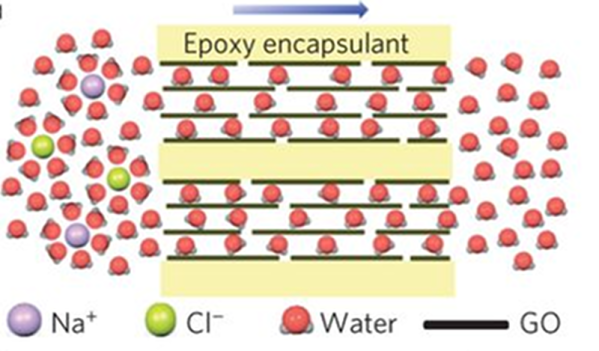Even though the majority of the Earth is covered in water, a surprising number of people around the world don’t have easy access to clean drinking water. The oceans of course are full of salt, and it is difficult to filter that salt out. Researchers at the University of Manchester have found a way to improve a graphene-based filter mechanism that could help convert sea water to potable water.
Pure graphene can do the job, but it is difficult to manufacture in commercial quantities. In addition, the membrane requires the creation of tiny holes, further complicating the production. The new method uses graphene oxide, which is very simple to make and deploy.











